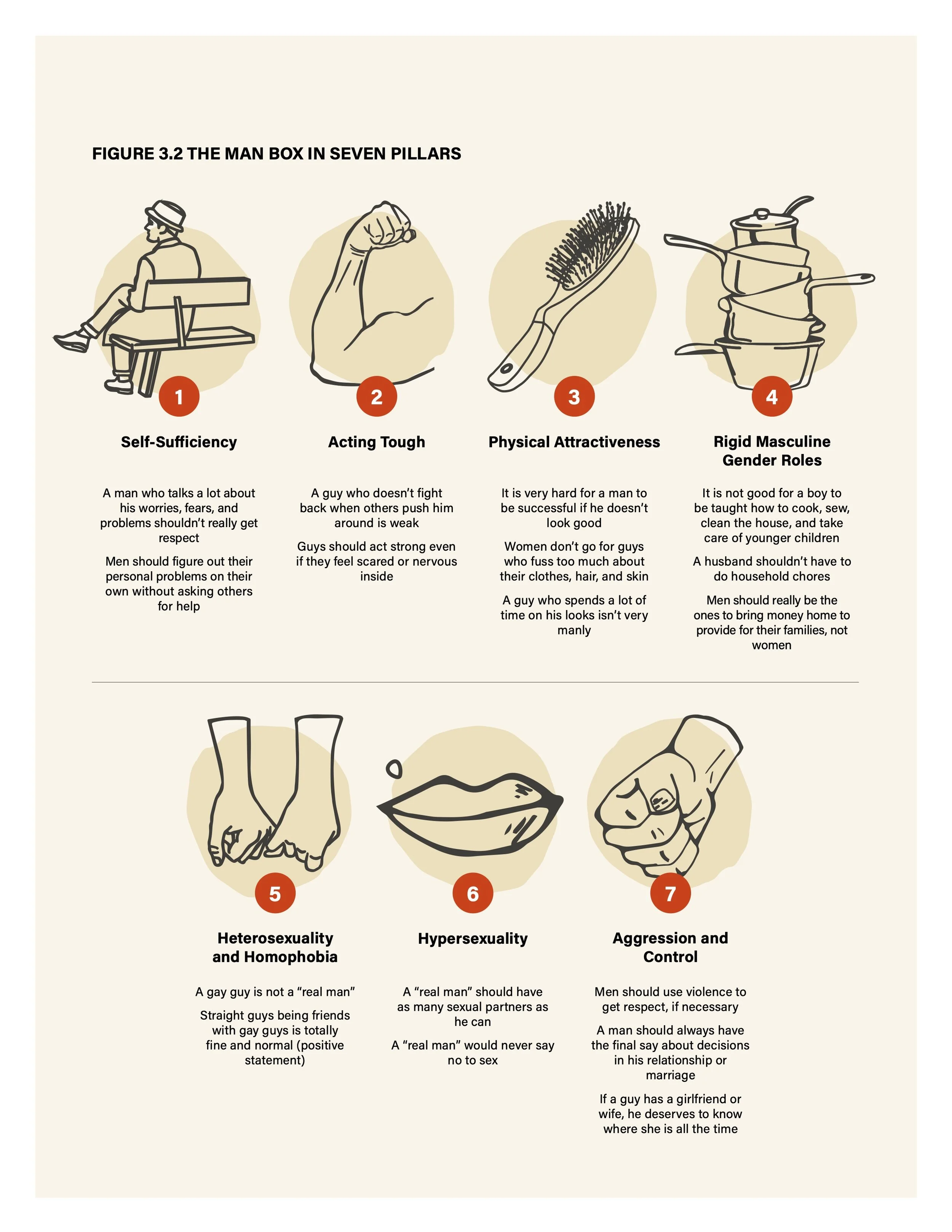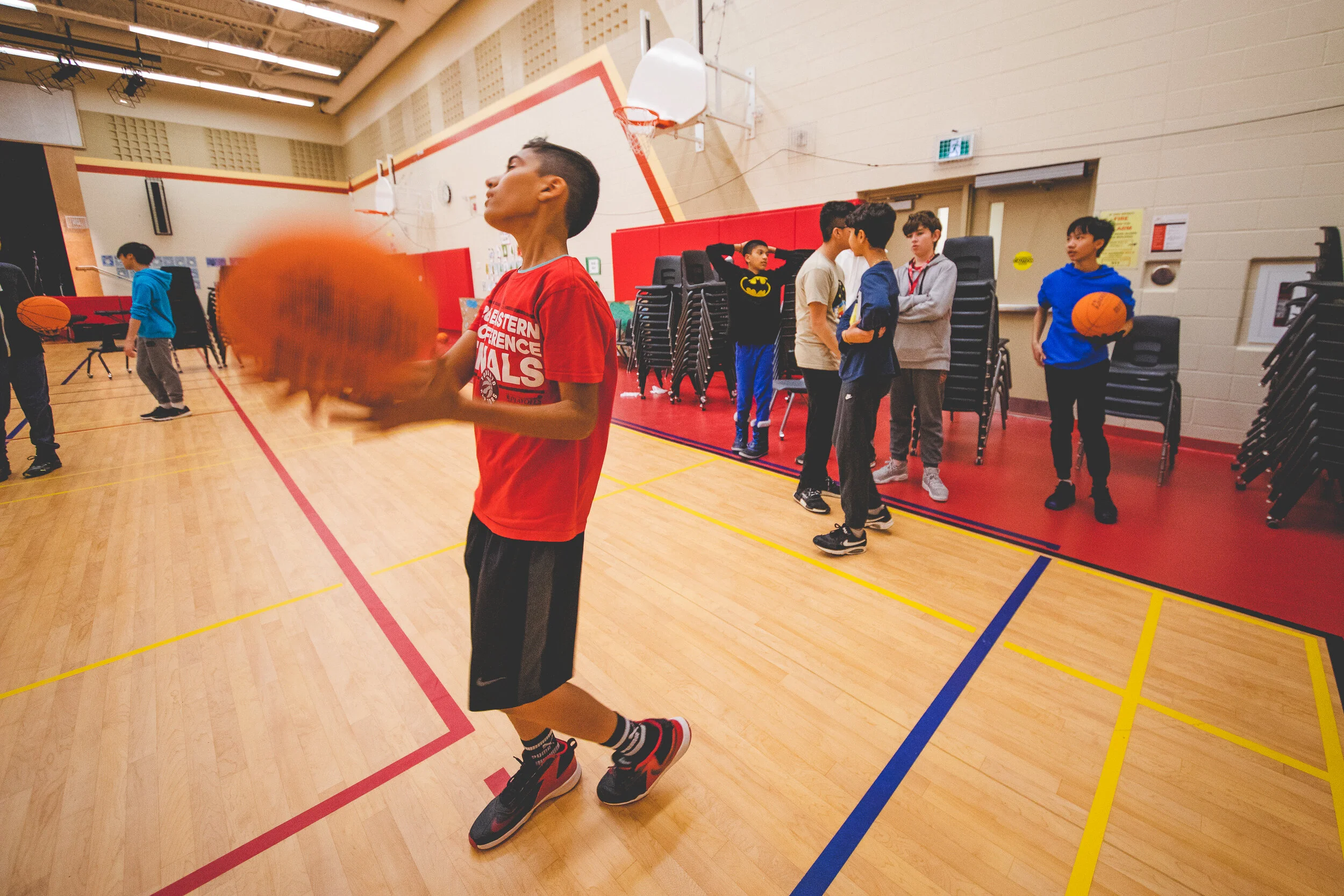In 2018, men's grooming brand Harry’s started trying to set itself apart from the competition with a short film that tenderly shows that masculinity can have a softer side. It tells the story of a boy who befriends an alien and teaches him how to be a man, giving way to tender reflection as the boy asks the alien if he has seen his father in the stars.
Read MoreOne of the valuable things about using the Man Box in programming with boys and young men is that it makes the invisible visible. We often use it as a way to understand the ways that traditional norms of masculinity constrict how boys and men are allowed to act and express themselves.
So what is the Man Box?
Read MoreWhen given the chance, boys are incredibly thoughtful about masculinity and open to reflecting on what manhood means to them. In order to support their positive development, parents and educators need to have a grounded understanding of what masculinity means beyond a media catchphrase like toxic masculinity.
Read MoreTime and time again, boys show us that if we raise the bar, they will meet us there. If we create a space for meaningful discussions, they will fill it. If we offer them an alternative to the boys-will-be-boys culture that would motivate a student to disrupt a presentation, they will show up with open hearts and open minds.
Read MoreAs parents, educators and mentors for the young people in our lives, we have options, and we have hope. We can build our skills. We can do our homework and practise our craft. We can keep learning and unlearning, each building our own inner knowledge base through research and experience.
Read MoreMany adults today are rooted in long-held friendships that took shape before the digital era. It is true that many boys have their deepest relationships with in-person friends at school, in their neighbourhood, or on their sports team. Yet it is also true that young people today have rich, meaningful and reciprocal relationships with peers that take place solely online.
Read MoreI’m particularly interested in authors who view their protagonists with depth, range and emotional complexity. The characters in these books are role models for boys who do not always make the right decisions but do always strive to treat others—and themselves—with courage, compassion and integrity.
Read MoreAt its worst, trash talk gets picked up by boys who would rather go on the offensive than end up as targets themselves. It fuels the us-versus-them dehumanization that turns rivalry into conflict, and the hierarchical don’t-be-vulnerable mindset that leads to patterns of hazing in sports teams and toxicity in video games.
Read MoreBeyond well-worn stereotypes about shutting down or hooking up, teenage boys want to feel close, and loved, and they want to talk with their parents about their relationships. Seriously.
Read MoreWe need more than a single day of awareness to ensure their wellbeing. We need sensitive and committed caregivers who understand the unique needs of boys and young men and anchor them in supportive environments and relationships.
Read MoreIn October, I wrote a L&UL blog post called 6 Stories About Boys Losing a Parent. One of the stories was Siobhan Dowd and Patrick Ness’ A Monster Calls—a book published in 2011 that was recently adapted into a film. I decided I wanted to further explore its narrative of emotional resilience, which resulted in this video essay on boyhood masculinity in film.
Read MoreYes, boys are impressionable and can be affected by ‘toxic’ masculinity. But they are also resilient and inherently capable of meeting the harshness and rigidity of harmful spaces with resistance, integrity and a commitment to their best selves.
Read More











